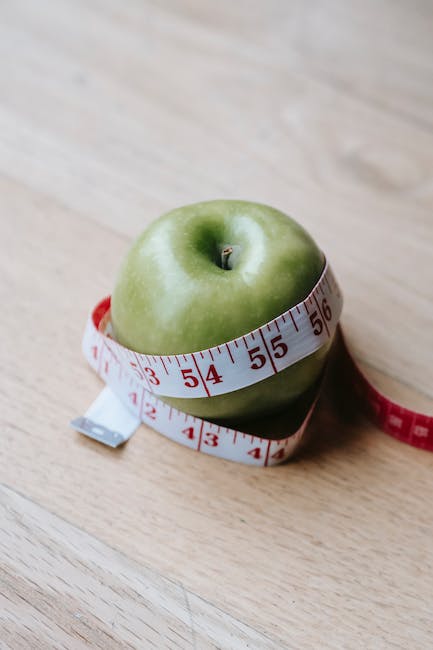Oatmeal, a breakfast staple for many, is often lauded for its health benefits. But what happens if you make it the star of every meal, consuming it three times a day? While oats are indeed nutritious, an all-oatmeal diet comes with both potential advantages and drawbacks. Let’s delve into the science and explore what happens to your body when you become an oatmeal devotee.
The Nutritional Powerhouse: Understanding Oatmeal’s Appeal
Oatmeal’s popularity stems from its impressive nutritional profile. A single cup of cooked oatmeal, made with half a cup of dry oats, provides approximately:
- Calories: 153-166
- Carbohydrates: 27-30 grams
- Protein: 5-6 grams
- Fat: 2.5-3.5 grams
- Fiber: 4 grams
Furthermore, oatmeal is rich in essential vitamins and minerals, including manganese, molybdenum, phosphorus, copper, and vitamin B1. It’s also a good source of antioxidants, particularly avenanthramides, which are not found in other cereal grains. The presence of beta-glucan, a soluble fiber, is another key reason for its health benefits.
The Benefits of Regular Oatmeal Consumption
Eating oatmeal, especially as part of a balanced diet, offers several well-documented benefits:
- Heart Health: Oatmeal’s soluble fiber helps lower “bad” LDL cholesterol levels, reducing the risk of heart disease. Additionally, antioxidants in oats contribute to overall cardiovascular health.
- Blood Sugar Control: The fiber in oatmeal slows down digestion, preventing rapid spikes in blood sugar levels. This is especially beneficial for people with diabetes or those at risk of developing the condition.
- Weight Management: Oatmeal is a filling food, thanks to its high fiber content. This can help control appetite and reduce overeating, potentially leading to weight loss.
- Improved Digestion: The beta-glucan in oatmeal forms a gel-like consistency in the gut, promoting regular bowel movements and preventing constipation.
- Rich in Nutrients: Oats are a good source of various vitamins and minerals that contribute to overall health.
Three Times a Day: Navigating the Potential Pitfalls
While oatmeal offers numerous health benefits, consuming it three times a day can present some challenges. Here’s a breakdown of what might happen:
Potential for Weight Gain
While oatmeal can aid in weight loss, eating excessively large portions, or adding high-calorie toppings can lead to weight gain. Additions like sugar, butter, or chocolate chips can drastically reduce oatmeal’s nutritional value, adding extra calories, unhealthy fats, and sugar.
Digestive Issues
Oatmeal’s high fiber content can be a double-edged sword. While beneficial for most, a sudden increase in fiber intake, such as eating oatmeal at every meal, can lead to digestive discomfort for some people. This can manifest as:
- Bloating and Gas: The increased fiber intake can cause excess gas production in the gut, leading to bloating.
- Abdominal Cramps: Sudden high fiber consumption can sometimes trigger abdominal cramps.
- Constipation or Diarrhea: A drastic dietary shift to only oatmeal can disrupt the normal digestive process, potentially causing constipation or diarrhea.
It’s important to gradually increase fiber intake rather than making sudden, dramatic changes to your diet.
Risk of Malnutrition
An oatmeal-only diet is highly restrictive and unbalanced. Oats are primarily a source of carbohydrates and fiber. While they offer some protein and healthy fats, they lack other essential nutrients found in foods like:
- Proteins: Crucial for muscle building and repair
- Healthy Fats: Important for hormone production and brain health.
- Vitamins and minerals: Needed for various bodily functions and overall health.
By exclusively consuming oatmeal, you might not get enough of these nutrients, potentially leading to malnutrition, muscle mass shedding, and impaired cognitive function.
Increased Sugar Intake
Oatmeal is often prepared with added sweeteners like sugar, honey, or maple syrup. If you are eating oatmeal three times a day, you might inadvertently be consuming excessive amounts of added sugar, which can negate many of the health benefits associated with the oats.
Potential for Gluten Cross-Contamination
While oats are naturally gluten-free, they are often processed in facilities that also handle wheat, barley, or rye. This can lead to cross-contamination, posing a problem for individuals with celiac disease or gluten sensitivity. Those with gluten sensitivities should choose certified gluten-free oats.
Diet Boredom
Consuming the same food multiple times a day can quickly lead to boredom and dietary fatigue. This can make it harder to stick to a healthy eating plan in the long term. It’s important to have variety in your diet, which will also ensure that you are getting all the nutrients you need.
Finding Balance: How to Incorporate Oatmeal Healthily
While eating oatmeal three times a day is not recommended, incorporating it into your diet in moderation can be beneficial. Here’s how to do it right:
- Variety is Key: Don’t make oatmeal your only source of nutrition. Combine it with a variety of other healthy foods such as fruits, vegetables, lean proteins, and healthy fats to ensure you get all the necessary nutrients.
- Portion Control: Be mindful of your portion sizes and avoid overeating. One serving of oatmeal is typically half a cup of dry oats, cooked with water or milk.
- Choose Healthy Toppings: Opt for nutritious additions like fruits, nuts, seeds, and a sprinkle of cinnamon instead of sugary additions like chocolate chips, syrup, and butter.
- Gradual Increase: If you are not used to a high-fiber diet, gradually increase your oatmeal intake to avoid digestive discomfort.
- Consider Different Types: Experiment with different types of oats (steel-cut, rolled, or quick oats) and preparation methods to keep things interesting.
- Listen to Your Body: Pay attention to how your body reacts to oatmeal. If you experience any digestive issues or other adverse effects, reduce your intake or consult with a healthcare professional.
Recommended Daily Fiber Intake
The recommended daily fiber intake varies depending on age, sex, and calorie needs. However, most dietary guidelines suggest:
- Adult Men: Approximately 30-35 grams of fiber per day.
- Adult Women: Approximately 25-32 grams of fiber per day.
- Children: Ranges from 14-30 grams per day, depending on age.
A single cup of cooked oatmeal provides around 4 grams of fiber, so it can certainly contribute to your daily intake, but shouldn’t be your sole source.
Conclusion: Moderation and Variety are Key
While oatmeal is a healthy and nutritious food, eating it three times a day is not a good idea. It can lead to digestive discomfort, nutritional deficiencies, and dietary boredom. Instead, enjoy oatmeal as part of a balanced diet that incorporates a variety of healthy foods. This will ensure that you reap the many benefits of oats without experiencing the drawbacks of an unbalanced diet. Remember, moderation and variety are crucial for maintaining overall health and well-being.








